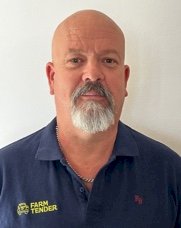What agribusiness can learn from Netflix
- By: "Farm Tender" News
- Ag Company News
- Jul 20, 2018
- 530 views
- Share

By Robbie Sefton - Seftons
Like many, I enjoy looking for great books, podcasts or stories about people who make a difference and truly contribute to others’ lives by sharing their learnings.
Recently I listened to an ABC Radio National podcast called “Freedom and responsibility”, which was an interview with former Netflix chief talent officer Patty McCord. McCord’s views resonated with what I’ve aimed to create in Seftons: a team (not “family”) of responsible, talented, innovative people, nurtured in a culture of freedom and understanding shared goals who truly care about their team members, our clients and thrive on what they do.
This story isn’t about Netflix the digital tv disrupter, its about how they run the business and particularly about how their team operates.
Netflix was successful so quickly because of its culture. But this sort of approach doesn’t need to be specific to entertainment television. I believe we can apply it to Australian agriculture: to our farms and small businesses that we love and run from our rural and regional towns or farm-house front room. No matter whether we have zero employees, two or 20, we can all take these learnings and adopt them into how we operate. I thought I’d share some of McCord’s ideas here; they’re not just about re-inventing management and work cultures Netflix-style, it’s interesting to consider how they could be adopted into running our family farms and small businesses.
First thing to note: it’s more than HR. It’s attitude and culture. It’s a can-do approach. It’s about treating staff and family members working on farms, and staff in small businesses, like adults and giving them all the information. McCord says “staff engagement” isn’t a “program”, it’s keeping employees informed of the big goals – whether it’s Netflix, the farm or rural small business.
McCord cites nine behaviours and skills fundamental in creating the right team: judgment, curiosity, passion, communication, innovation, honesty, impact, courage and selflessness. The “rare responsible person” is also integral: self motivating, self aware, self disciplined, self improving, acts like a leader, doesn’t wait to be told what to do, never feels “that’s not my job”, picks up rubbish lying around and behaves like an owner.
Her emphasis is on people, not rules. She says sometimes we’ve “shoe-boxed people into being passive receivers of information and needing permission, but if we put people a little bit outside their comfort zone, they might surprise you”. She also emphasises recruiting the right people, “constantly matching [people’s] talent” to things you need to do in the future. So the right manager hired or family member with the right skills to create a high-end beef or sheep stud, export operation or expand into cropping, may not be the right person to run it.
Critically, the best managers, farmers and small business operators get great outcomes by sharing information, and providing the insight and understanding to enable staff to make sound decisions. Not by controlling them. And when you realise that one “outstanding” team member gets more done and costs less than two “adequate” employees, pay is important.
As author of “The Little Prince” Antoine De Saint‐Exupery wrote: “If you want to build a ship, don't drum up the people to gather wood, divide the work, and give orders. Instead, teach them to yearn for the vast and endless sea.”












Share Ag News Via